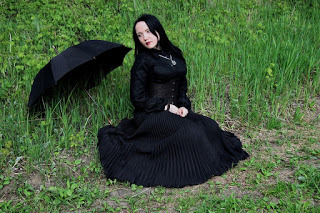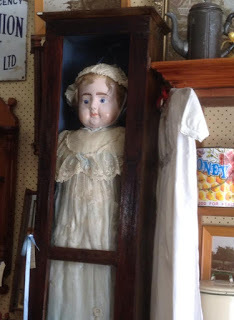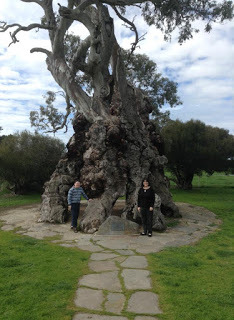Paula Vince's Blog: The Vince Review, page 61
June 20, 2016
Melancholia - The Happy side of Sadness

'Melancholy is the happiness of being sad,' said Victor Hugo.
That quote was an eye-opener for me. It sounds like a crazy oxymoron, but of course Hugo was right. His words may even clear up some confusion many of us have had about the issue. It's easy to think in a simplistic, black-and-white sort of manner when it comes to happiness. The dichotomy probably stems back to our childhoods. We learned as preschoolers that sadness is bad and happiness is good, so we shy away from everything that has the slightest whiff of gloom.
In my mind, I'd imagined some sort of nasty smelling brew with bad moods, minor irritations, full blown grief and bereavement all simmering away in the same pot. I wanted none of it! Just serve up cheeriness, joy and elation for me, thanks very much. If my friends or family members seemed to be partaking from the sadness pot, I thought it was my duty as a nice person to try to help them get over it and cheer them up. But melancholy is one of those dishes that may sound bad in theory, (like truffles, caviar, anchovies, or blue vein cheese), but people actually enjoy.
I thought of Gretchen Rubin describing her happiness experiment. One thing she tried was indulging in tragic autobiographies and other true stories. It was meant to have a sort of cathartic effect. To her surprise, she found it worked for her. You can read my review of her book, The Happiness Project, here. Other authors have reported that writing books which highlight issues of social injustice, political mismanagement or other sad plights have helped to work the sadness out of their system and raise their contentment.
Then I thought of Anne Shirley and her friends, Diana, Ruby and Jane from Anne of Green Gables, merrily trying to write the most tragic tales possible for their story club. The more tears that were shed, the happier these girls were. They even made a sort of contest of it. They aren't the only ones who have found this sort of melancholic activity has an uplifting effect. In fact, there seems to be something about melancholia that attracts teenage girls. If Anne and Co lived in our times, they might have gone along to watch 'Me Before You' with my daughter and her friends.
Next, I thought of the blues artists, so named because they've made an art out of their 'woe is me' music, which so many listeners can appreciate.
I didn't forget the prophet, Jeremiah. Since he seemed to exhale lamentations whenever he opened his mouth, some Bible scholars have assumed that he might have been suffering from clinical depression. That's not necessarily the case. He may have enjoyed his heavy calling, and been happier in his own way than anyone around him.
My favourite example comes from The House at Pooh Corner. After many failed attempts to cheer him up with all the bells and whistles they could think of, Eeyore tells Pooh and Piglet that their good intentions are merely upsetting him. He convinces them that they would be doing him a kindness if they just left him to enjoy his melancholy in peace, because that's when he's happiest. We shouldn't laugh at silly old donkeys who are happy being miserable, because we might be pointing the finger at ourselves. The proliferation of another oxymoron I'd call 'tragic entertainment' shows that the world is full of modern Eeyores.
If you want to indulge your own bit of melancholia, plug in your headphones and crank up your Billie Holiday or Eric Clapton. Get your doona and hot chocolate ready for a movie marathon of Beaches, Titanic, A Walk to Remember and Dead Poet's Society. Or if you'd prefer to read your blues away, The Book Thief, The Lovely Bones, The Kite Runner or The Fault in Our Stars might do the trick. And these are to name only a few. Maybe it's partly because we really can't have a beautiful rainbow without the dark storm clouds and drenching showers. I consider myself a person who thrives more on happy tales, but getting stuck into the sad and desperate plights of heroes and heroines does work better than a dose of medicine at times.
You don't need to be a self-proclaimed Goth or Emo to benefit. However you like to indulge in your melancholia, have a good time and we'll see you on the other side.
Photo courtesy of Pixabay
Published on June 20, 2016 12:00
June 17, 2016
'Hector and the Search for Happiness' by Francois Lelord

As I find happiness and well-being literature quite interesting, I thought I'd give it a try. It's not one of my favourites, but it's still a bit different.
“Once upon a time there was a young psychiatrist called Hector who was not very satisfied with himself. . . . ”
Hector is very good at treating patients in need of his help. But he can’t do much for those who are simply dissatisfied with life, and that is beginning to depress him. When a patient tells him he looks in need of a vacation, Hector takes a trip around the world to learn what makes people happy—and sad. As he travels from Paris to China to Africa to the United States, he lists his observations about the people he meets. Is there a secret to happiness, and will Hector find it?
Combining the winsome appeal of The Little Prince with the inspiring philosophy of The Alchemist, Hector’s journey ventures around the globe and into the human soul. Lelord’s writing inspires us to consider life’s great questions. Uplifting, empowering, and optimistic, this is a fable for our times and all time.
MY THOUGHTS:
This is written like a fairy tale for grown ups. Hector is a young psychiatrist who is concerned that in spite of the advice and pills he administers, he can't seem to make his patients as happy as he wishes. He decides to take a trip around the world, taking in China, Africa and the USA, with the aim to understand what makes people happy or unhappy. If there's a secret, he's determined to find it.
This book has a simple, whimsical format, as if it's a kids' story book, and even begins with 'Once upon a time.' The hero is written to come across as part shrewd intellectual and part innocent little boy. There are frequent asides in parentheses, such as (Hector was intelligent but not necessarily smart). Without mentioning specific philosophies, nationalities and religions, these are often plain through the context.
Hector jots impressions in a notebook. He learns that you must be careful when you ask people directly whether or not they're happy, because it often makes men laugh and women cry. He meets several people, including a monk in a Chinese monastery, who wonders why so many westerners are interested in his religion when they have so many old and perfectly good religions of their own. Toward the end, Hector's findings are summed up by a well-known happiness specialist in 'the country with the most psychiatrists', who tells Hector that during his travels, he managed to discover several of the most popular indicators, and then attempts to them put them together in a formula.
Although it's an easy-to-read companion to all the non-fiction happiness texts out there, I quickly grew tired of Hector's womanising tendency, and the way it's portrayed indulgently as his funny little weakness. He cheats on his long-time partner, Clara, repeatedly during his travels and doesn't stop to consider that his 'if it feels good, do it' habit may bring the opposite of happiness to others as well as himself. That's not the habit of a nice guy. It was written as if he's a little boy who wants to sample different sweets, while he's messing with people's lives. I think it was trying to be a bit too cute, and came off superficial.
Surely those parable-cum-novels have to be really carefully crafted to work. This is just another one with main themes being poked in our faces every minute, and not always tastefully. In spite of what the blurb says, I didn't think it was much like 'The Little Prince' or 'The Alchemist' at all.
2 stars
Published on June 17, 2016 05:08
June 12, 2016
Eight books featuring antiques

What's the great charm of antiques, especially when it can be easy to laugh at them? I see the comic aspect when we watch programs like The Antique Roadshow and American Pickers. Who hasn't grinned at the image of some hoarder hauling in his old junk which only appears good for the bin? Rusty tin cans, yellowing newspaper, weird old toys, ugly, garish hair accessories. Taken to the extreme, their houses can be havens for rats, mice and cockroaches. Surely some of the more physical aspects of the past are well left behind us? At least when living things pass their use-by date, they are buried.
Yet we do keep collecting them. Of course, antiques can be useful for helping us figure out how things used to be. Historians may look at some old gadget and tell us, 'I reckon they flicked this lever, pushed this knob, twisted this handle, and there you have it.' It makes handy research fodder for many people, including historical novelists. At some time, we've all paid good money to get into pioneer museums, so we can see things run just as they had in the past.
But I think the biggest fascination we have with antiques is all about how they kindle the imagination. We pick them up, turn them over in our hands, run our fingers across their surface and wonder about all the long-gone people who would have done that before us, maybe even centuries ago. If these objects could talk, what we hear could be amazing. This trapped story element may be what draws me from time to time to browse in antique shops. And also why antiques tend to pop up in stories.
Here's some good ones I can think of.
1) The Magic Wishing Chair by Enid Blyton
It's one for kids. I'll put it first because it's surely one of the first I read, aged 6 or 7. Mollie and Peter wander into a strange antique shop when they're looking for a birthday present for their mother. The proprietor is a weird chap who threatens them, and they are rescued by the friendly, flying chair. It is itself an antique. They have many adventures when it proves to be willing to take them wherever they want to go.
2) The Bronte Plot by Katherine Reay
 Lucy Alling works with antiques, including old books. Some of her business dealings aren't quite on the level, but she keeps this from her boss, Sid. It's inevitable that some day her dishonest ways will catch up with her. My review is here.
Lucy Alling works with antiques, including old books. Some of her business dealings aren't quite on the level, but she keeps this from her boss, Sid. It's inevitable that some day her dishonest ways will catch up with her. My review is here.3) At Love's Bidding by Regina Jennings
 Miranda is third generation in a successful family dynasty of antique auctioneers. One day, her ailing grandfather accidentally sells a treasure its owner never intended to part with. This leads them on a merry dance into the sticks, trying to track it down. My review is here.
Miranda is third generation in a successful family dynasty of antique auctioneers. One day, her ailing grandfather accidentally sells a treasure its owner never intended to part with. This leads them on a merry dance into the sticks, trying to track it down. My review is here. 4) Best Forgotten by Paula Vince
 I get a buzz when my own books fit into these lists. Courtney, the hero, has amnesia. His mother's fiance, Roger, turns out to be a fanatical antique dealer. I drew from my many forays into antique shops when I planned Roger's wonderful emporium. Without wanting to give anything away, his antiques turn out to have a pivotal role in the story of how Courtney lost his memory. I wrote an author's review here. This book won the CALEB Award for fiction in 2011.
I get a buzz when my own books fit into these lists. Courtney, the hero, has amnesia. His mother's fiance, Roger, turns out to be a fanatical antique dealer. I drew from my many forays into antique shops when I planned Roger's wonderful emporium. Without wanting to give anything away, his antiques turn out to have a pivotal role in the story of how Courtney lost his memory. I wrote an author's review here. This book won the CALEB Award for fiction in 2011.5) The Glass Painter's Daughter by Rachel Hore
 The antique stained glass window is discovered after being concealed for years. Fran, the glass-painter's daughter, and her father's apprentice, Zac, set out to restore it. The story delves into the long-lost history of its origin, involving another family who have also been forgotten about for years. A story of fascinating layers of the past. My review is here.
The antique stained glass window is discovered after being concealed for years. Fran, the glass-painter's daughter, and her father's apprentice, Zac, set out to restore it. The story delves into the long-lost history of its origin, involving another family who have also been forgotten about for years. A story of fascinating layers of the past. My review is here. 6) Harry Potter and the Half Blood Prince by J.K. Rowling
The significance of antiques is introduced in this volume, and concludes in The Deathly Hallows. Harry discovers that handsome young Tom Riddle, who later became the evil Lord Voldemort, had a specific interest in tracking down antiques. He was after relics and treasures owned by each of Hogwarts' founders when they were still alive. And Harry, with the help of Ron and Hermione, must track each of them down to undo the terrible things Voldemort did with them. (Surely at this stage it wouldn't be a plot spoiler if I mentioned the word 'horcruxes')
7) The Moonstone by Wilkie Collins
This one is a fantastic Victorian novel which I read in my early twenties. Rachel's cousin, Franklin Blake, brings home a ridiculously valuable rare gem from the east for her birthday. It's rumoured to have dark, supernatural powers. When the antique jewel disappears, is the resulting upheaval simply the result of circumstances, or partly to do with the moonstone itself? I loved the eerie atmosphere this novel evokes.
8) Great Expectations by Charles Dickens
Who could possibly forget the pathetic image of Miss Havisham, sitting in her shabby drawing room, surrounded by her treasures from the day her world fell apart? Her mouldy old wedding cake and cobwebby wedding dress which falls off her frame have simply become antiques as she's become an antique herself.
If this list sets you off on a fun quest to read books with antiques, that'll be great. Let me know if you can think of any others I may like.
Published on June 12, 2016 12:00
June 9, 2016
Words and food match-ups

I stumbled across this proverb when I was flipping through my Bible recently.
Proverbs 26: 22 - The words of a gossip are like tasty bits of food; people like to gobble them up.
I was surprised at the apt analogy, especially considering that when King Solomon wrote those words, the world was thousands of years away from the junk food era we know so well today. Indulging in words of gossip is exactly like digging into a bag of jubes, licorice all-sorts or potato chips left out on a table. In the recklessness of the moment we enjoy the tastiness of them, even though we know they're a bit 'naughty'. But after scoffing a whole bag, we wind up feeling guilty and sick to the stomach. The pleasure they bring us is just empty calories, which turn out to have no morsel of goodness in them. Some of these treats don't even have anything real in them at all, but just appealing colours and chemicals.
Since that made such a lot of sense, I wanted to see if I could think of any more. It was fairly easy, since the words we use and the food we eat have essential features in common. Food sustains the physical body, and words, whether written or spoken, do the exact same thing for our spirits and souls. So here's what I came up with when I tried to make my own similar proverbs.
Some sermons, lectures, personal development or how-to books are shoved down our throats.
Okay, these are a bit like meals cooked with dry lentils, tofu, kale or other 'superfoods' which leave a lot to be desired when it comes to flavour. They are also like the sorts of recipes I often see flash up on Facebook. 'Feed your kids these healthier options and they won't even know the difference,' we're told. I can tell you, they know the difference alright. I remember making a batch of sugar-free, gluten-free sweet potato and beetroot brownies which even I couldn't eat, they were so bland and stodgy. Most of them ended up in the bin. Parsnip and pumpkin au gratin didn't cut it as a vegetarian option with my family either. So the dry old books I'm thinking of fall into this category. We're told they're good for us, but we really don't fancy going back for more.We get tempted to move on to satisfy our tastebuds with something else instead, to make up for the experience.
Encouraging quotations which have stood the test of time are a refreshing treat when we need one.
I think these are like a nice, cool swig of water when you're on a hike. Maybe it's from a flowing creek you stumble upon when you really need one. There could be an element of surprise and serendipity which makes it all the more refreshing. A handful of trail mix or a quick muesli bar may also do the trick. These can make a huge difference in giving us an extra boost of energy to push on with. 'It felt like I couldn't move another step, but now I'm refreshed enough to lift my head and keep going.' That's the effect a good quote may have on our daily grind.
Purposeful study may be good soul food, but not necessarily easy to take on board.
I'm thinking of the blocks of study we all choose to apply ourselves to from time to time. It may be coursework from text books, or ancient literary classics, or religious treatises. Making an intention to sit down with our notebooks and stick with it is a bit like chopping up a fruit salad, or making a soup from scratch with fresh vegetables. It may seem easier not to go to the effort of preparing it all, but we choose to do it anyway because we know the benefits will be worth it. And then these sorts of books and meals have the potential to be even more fresh and delicious than we expected.
Stories which rely on shock, in-your-face elements such as unnecessary gore, brutality and sadness can make us sick to the stomach.
I've found some of these to be the emotional equivalent of food poisoning. That's all I can say.
Novels with excellent characters and fascinating plots are like a banquet.
There is plenty for everyone within the pages. I've read foreign stories which are like intriguing, ethnic delicacies. Romances can deliver the emotional punch of good quality champagne and chocolate cake. Comic moments are like the unexpected bursts of popcorn in a frying pan. Well planned mysteries remind me of the most delicious fruitcakes, with fillings we don't expect. And lovely descriptions, which authors have worked hard on, can be like silky custard, hot chocolate or well-aged, vintage cheeses. No wonder so many of us keep coming back to books.
Please feel free to leave a comment, or another analogy if you think of one.
Published on June 09, 2016 12:00
June 7, 2016
'No Other Will Do' by Karen Witemeyer

Genre: Christian historical fiction, western fiction.
Men are optional. That's the credo Emma Chandler's suffragette aunts preached and why she started a successful women's colony in Harper's Station, Texas. But when an unknown assailant tries repeatedly to drive them out, Emma admits they might need a man after all. A man who can fight--and she knows just the one.
Malachi Shaw finally earned the respect he craved by becoming an explosives expert for the railroad. Yet when Emma's plea arrives, he bolts to Harper's Station to repay the girl who once saved his life. Only she's not a girl any longer. She's a woman with a mind of her own and a smile that makes a man imagine a future he doesn't deserve.
As the danger intensifies, old feelings grow and deepen, but Emma and Mal will need more than love to survive.
MY THOUGHTS:
This is a nice little western romance. Emma and Malachi knew each other when they were kids, and she rescued him from freezing to death in the snow. Since then they've gone their separate ways. He's an explosives expert working for the railways, and she's the leader of a women's colony, full of ladies who have left their former lifestyles for the chance to join this independent band. When an anonymous villain starts threatening murder unless they leave the town, Emma knows it's time to call on the only male she's ever really trusted for help.
I admire Karen Witemeyer for her thorough research on this novel. It's great when an author takes this part of the process seriously, rather than just trying to wing their way into another time period. Her knowledge of horses, firearms and explosives seems extensive, but she didn't parade it in big slabs just to show the reader she'd done her homework. It was all revealed in measured doses when it became important for the story line.
The guns made me feel a bit freaked out at times. In my place and time, ladies in a similar position would be encouraged to learn self-defense skills such as martial arts, and maybe carry some capsicum spray. These girls knew they might have to shoot to kill. It was serious enough for them to all line up for firearm lessons with Malachi, no matter how their stomachs churned at the thought. It shows what the wild west was like in the nineteenth century, and we'd do well to remember it wasn't all handsome cowboys, pretty girls and romance.
Talking about romance though, I did enjoy the portrayal of Emma's feelings for Malachi. She's an independent woman, a banker who prefers numbers and balance sheets to airy fairy stuff, and the respected leader of a women's colony. Yet her reaction to his nearness and her daydreams about him were very cute. And from his point of view, she's always been his angel.
The story had me reading past midnight to find out the resolution. The mystery aspect played out well. Who would be so determined to scare a group of ladies from their town, and why? What could the motivation possibly be when they were simply trying to live quiet, self-sufficient lives on their own land, far from the next town? The reason does make sense when we find out what it is.
I'd recommend that you jot down a list of the different women to keep handy at first. There are quite a few of them who are introduced all at once, and we get the sense that at least some of them are bound to be significant, or not quite on the level. In fact I was getting overly suspicious of some who turned out to be innocent. You get to remember who they all are down the track, but the list at the outset comes in handy.
Thanks to Bethany House and NetGalley for my review copy.
4 stars
Published on June 07, 2016 19:13
June 5, 2016
'The Invoice' by Jonas Karlsson

Genre: Satire, general fiction, happiness literature.
Hilarious, profound, and achingly true-to-life, Jonas Karlsson’s novel explores the true nature of happiness through the eyes of hero you won’t soon forget
A passionate film buff, our hero’s life revolves around his part-time job at a video store, the company of a few precious friends, and a daily routine that more often than not concludes with pizza and movie in his treasured small space in Stockholm. When he receives an astronomical invoice from a random national bureaucratic agency, everything will tumble into madness as he calls the hotline night and day to find out why he is the recipient of the largest bill in the entire country.
MY THOUGHTS:
This narrator never divulges his name, but he's become one of my heroes. His story is a great example of why some of the most memorable books about happiness need to be told in story form rather than self help or non-fiction.
Imagine that happiness is no longer a free commodity. The government suddenly decides to make it a revenue raiser, and citizens are asked to pay for all those moments of contentment and satisfaction we've enjoyed all our lives. Invoices are sent out which carefully take into account every happy moment we've ever lived.
Our hero is gobsmacked that his own bill is astronomical compared to others, since he believes his life is a pretty underwhelming mess. He's a bachelor in his 30s who lives in a modest apartment, and has a part-time job in a video shop. Whenever he tries to argue his case, extra proof keeps rolling in that he's definitely lived a happier life than those with higher profiles and more trappings of success, like his friend Roger.
Maud is one of the company's case workers who tries to help him sort through his paperwork. She finds herself growing more attracted to the hero and his simple philosophy, even as she tries to explain to him why human beings are generally a pretty miserable lot. She also latches onto the ways in which his rosy spin is all in his own head. Given the same scenarios as others, he has a way of maximising his fun and wow factor over simple things.
I enjoyed his desperate attempts to explain why his score shouldn't be so high. He reasons that he's wasted his life and missed out on several experiences he should have chalked up, such as travel, study, marriage, kids and a higher profile career. I couldn't help wondering to what extent we're simply taking cues from the world around us, which tells us that we need these things to inflate our value, and therefore make us happier. It's a good challenge to make sure that our goals and ambitions in life genuinely come from our own hearts, and not those of others.
I love it that a guy like this hero, who never bothers to put himself ahead of anyone else, becomes our role model. He is humble, enthusiastic, and nothing which brings him such genuine pleasure is ever out of our reach either. He represents anyone who can simply gaze outside and enjoy a sunset, wander down the street for an ice-cream, or discuss the merits of a good story. The little things really are the big things, and if we can't be content with them alone, we probably can't be content with more.
The nice, romantic little twist was very cool.
Thanks to Blogging for Books and Crown Publishing for giving me a review copy through NetGalley.
4.5 stars
Published on June 05, 2016 12:00
June 1, 2016
'From this Moment' by Elizabeth Camden

Genre: Christian historical fiction
Romulus White has tried for years to hire illustrator Stella West for his renowned scientific magazine. She is the missing piece he needs to propel his magazine to the forefront of the industry.
But Stella abruptly quit the art world and moved to Boston with a single purpose: to solve the mysterious death of her beloved sister. Romulus, a man with connections to high society and every important power circle in the city, could be her most valuable ally.
Sparks fly the instant Stella and Romulus join forces, and Romulus soon realizes the strong-willed and charismatic Stella could disrupt his hard-won independence. Can they continue to help each other when their efforts draw the wrong kind of attention from the powers-that-be and put all they've worked for at risk?
MY THOUGHTS:
Wow, it's a romance and murder mystery rolled in one, all with a cool Steampunk sort of feeling. The story takes place in late nineteenth century Boston while their underground subway system is being built, which adds to the impression of constant movement.
Having read Summer of Dreams, the prequel, I was pleased (and not surprised) to see that Romulus would be the hero. No longer the restless college student, he is now the publisher of a well-known science magazine. But he's still just as quirky and flamboyant. And the inferiority complex he hides still ripples under the surface. If he lived in my time and place, he'd surely throw himself into the hipster movement.
Romulus and his cousin Evelyn each own half the magazine. He's anxious to acquire a renowned nature artist named Stella West as a member of their staff, certain that her talent will boost their profile even more. But as he sets out to meet her, he has no idea that Stella's real reason for being in the city is to prove that her sister was murdered, and track down her killer.
Stella is a great, gutsy character who's playing with fire. She knows her sister, Gwendolyn, probably met up with foul play while she was trying to expose some corruption in City Hall, yet she's still game to dig around in the same places in her search for justice. Since Stella and Romulus both have such strong personal agendas, they are not above using each other to get what they want. They are both aware of this, but the attraction still blooms, even at times when they wish they'd never crossed each others' paths.
The plot thread with Evelyn and Clyde puzzled me a bit at first. They ended on such a strong note in Summer of Dreams, I was trying to figure out a catalyst for their marriage breakdown. It gradually comes out in a credible picture, given what we know of their personalities, and we discover the story hasn't finished with them yet.
As for the 'Scientific World' partnership, it's hinted that both cousins are grasping the success of the magazine very tightly. It bolsters Romulus' fragile ego, and satisfies Evelyn's demanding sense of order and purpose when nothing else seems to work, including her marriage. Knowing all this, I was just waiting for that foundation to crumble. Still, the way it happens comes as a bit of a shock.
One fun way of boosting the profiles of characters is historical name dropping. For example, Clyde worked for a time with Thomas Edison, and Stella was given a William Morris scarf by the artist himself. Since these celebrities lived so long ago, their brushes with these fictional characters cannot be refuted and it's easy to nod and go along with it. In other ways, the story has a real up to date feeling. For example, Riley McGraff, the arrogant private investigator, keeps insulting Stella, who hired him. I was half expecting him to pull out some blonde jokes, but that would have been going too far.
In many ways, this is my favourite Elizabeth Camden novel so far. There's just so much in it. My main point stealer is that she didn't really convince me that Romulus and Stella's relationship will go the distance. By the end of this story, he's still moody and easy to distract, she's still gloomy and disappointed in his behaviour, and they're both still second guessing each other. I'd like to think it will last, but I just don't get a feeling that it's very strong. Still, you never know what will happen.
Thanks to Bethany House and NetGalley for my review copy.
4 stars
Published on June 01, 2016 12:00
May 30, 2016
A lesson from an eel

I shared this on the Christian Writers Downunder blog, and thought I'd change a couple of things and share it here too.
I have recently returned from a beautiful visit to far north Queensland, where we saw many great attractions. At Paronella Park the kids were given food to feed the fish on the property as part of the entry fee. The water turned out to be teeming with big, eager fish, crowding over each other to get closer to the front. Several of them had to flip onto their sides when it got too shallow to keep swimming. Then suddenly, there was a great, healthy eel in the race, slithering her way through and waiting for the next throw, just like all the fish. She even slipped right across my toes. At that moment, I changed the idea I'd always had about eels. Without much evidence, I'd imagined them to be brainless, slimy creatures which some people like to eat. This one was more like a cute little girl begging, 'Choose me, choose me!' (Our tour guide told us that all the eels on the property are female, and the males can be found further out to sea.) Her skin was sleek and glossy and her reflexes were finely tuned.
As a race, we humans make judgments and stereotypes so automatically. It's not our fault, but partly how the human brain is wired. I remember learning in Psychology that we make sense of the world by mentally storing things in boxes, even when the things we think we believe aren't necessarily true. For example, I neatly tucked eels away in the same category as the creepy, slime-dripping jellyfish I used to strike when swimming. This tendency can be useful, especially during our early years when we're making sense of the world. However, it has the potential to severely limit us if we let it keep going unchecked for the rest of our lives. It can be bad for the people, places and things we're unconsciously judging, as there's nothing more frustrating than trying to change minds which are set like concrete. It's also really sad for us to live in the narrow, rigid parameters we set for ourselves.
I believe we can open up new vistas of thought for ourselves, when we make a point of remembering that it's not an entirely predictable world, but one in which people and critters have the potential to surprise us all the time. That's where good writing may play its part. The type of books I enjoy reading are those which are fresh enough to challenge the opinions we've already made. The pens of the authors also turn out to be tools which help us hammer and chisel cracks into our discrimination, prejudice and automatic assumptions.
The people of first century Jerusalem had their fixed notions challenged. They believed that everyone who had his life shortened by the sentence of crucifixion was a no-good menace whose name would sink into obscurity, never to be heard of again. Were they wrong!
I've come across people who have told me, 'I never read fiction, because it's a waste of time, when you can be reading so much better material which is actually true.' They don't realise they've adopted the mindset that fiction cannot possibly hold its own sort of truth. Then they deprive themselves of a whole wealth of literature which might have the potential to move them deeply.
The man who built Paronella Park was a visionary who ignored stereotypes himself. Jose Paronella was a Spanish migrant and baker by trade, who fulfilled his childhood dream of building a fairytale castle on his property. His pragmatic neighbours told him, 'It's just weird to do something like that here in Australia,' but he didn't listen to them. I'm glad those fish and eels are finding it such a fertile place to live so many years after his death.

I want to keep training myself to watch out for extreme reactions which cause an emotional response to rise in me, and ask myself, 'Have I really got the facts right this time, or is it another eel?'
Have you noticed any eel reactions over the years, in yourselves or others?
Published on May 30, 2016 20:56
May 26, 2016
'Summer of Dreams' by Elizabeth Camden

Genre: Historical, Christian, Romance
The daughter of a powerful army general, Evelyn White vows she will never marry a man in uniform. Which is why Clyde Brixton, a West Point cadet on the verge of graduation, presents a problem. Their attraction is instantaneous, but it threatens Evelyn's lifelong dream of going to college.
Clyde's brilliance in the new field of electrical power has him poised for a promising career in the Army's Corps of Engineers. The one thing he never anticipated was Evelyn White, a woman whose soaring ambition matches his own.
As they fall in love over the course of one magical summer, they believe dreams are enough to weather any challenge. But when they are tested by forces neither saw coming, will the fragile bonds forged during those dream-filled summer days be strong enough to survive the storm?
MY THOUGHTS:
It seems to be the fashion for free or very cheap kindle novellas to lure us into a series, and it works for me.
This one is all about three turn-of-the-century buddies having a good time using their talents to pursue their passions. Evelyn is a rich girl with a bent for engineering but no way to pursue it, since she lives in a male-dominated society with a bossy, patriarchal father. Clyde is a poor boy with a load of demerit points to work off before he can graduate from West Point Academy. Romulus is Evelyn's cousin, a good-looking and flamboyant Harvard student studying natural science. Together, they build a magnificent greenhouse with an artificial environment capable of sustaining nesting hummingbirds and a variety of delicate butterflies, fish and plants.
It's fun when modern authors, like Elizabeth Camden, get a chance to let their experience of contemporary times embellish their historical fiction. For example, Clyde's poor father crashed and burned while he was working on a project which might have turned out to be the predecessor of the kitchen fridge. There's no way the characters could have known that he might have been onto something, but we readers do. There's also a good sense that what goes around comes around. While I sensed Clyde's excitement as he talked about the fascinating technological changes which seemed to be accelerating before his eyes, I couldn't help but think of several young men his age I know personally, who get similarly excited over advances in computer technology.
One main theme is that sometimes limits just can't be pushed through, but that shouldn't stop anyone channeling their passion elsewhere. When we can't pursue our ultimate dreams, we just do what we can. Evelyn finds it impossible to push through society's expectations and her father's resistance to pursue a tertiary degree, but she can pour all her enthusiasm and knowledge into creating the dream greenhouse in her backyard. She admits that her self-taught knowledge is full of gaps, but won't let that stop her.
The trio never work from a bitter, 'Let's show them,' sort of attitude, but it's just what they do. If the world doesn't want your offerings, don't let them push you down just the same. Well, maybe there is a bit of cockiness from Romulus, who says, 'This greenhouse is mankind's war against mediocrity and acquiescence.' Even though nobody else would see or enjoy it, it was still true for them. And of course there's a strong romance thread, which many ladies will enjoy.
This book leads on to 'From the Moment', which I'll review very soon.
4 stars
Published on May 26, 2016 12:00
May 23, 2016
Noteworthy literary trees
There is something special and sacred about trees that really appeals to me. They simply stand strong, upright and silent. They don't boast about how important they are, yet their role is vital to our continued health on this planet. They purify our air and offer delicious treats in the form of fruit. I've enjoyed their welcome shade and shelter many times. Some birds and animals make their homes within their boughs. And even when trees pass away they are still useful, as they give us fuel and paper. Even their name imparts a sort of calmness. Try whispering 'tree, tree, tree,' and it sounds a bit like the rustling of breeze through pine needles.
I totally understand why so many authors and artists have immortalised trees in their creative work. They have a lot of beauty, patience and character. Most of all, I love it that trees are a blessing we can easily enjoy in our own lives, as well as in stories, folklore and history. Before I launch into my lists of literary and biblical trees, I'm going to mention some I've come across in my own travels.
REMARKABLE TREES I'VE COME ACROSS
1) The Herbig Tree

It stands in Springton, South Australia, not far from where I live. In the mid 1800s, some distant ancestors of my family lived inside its hollow trunk during a rough stage of their pioneering life. They later managed to build a house for their growing family, but the tree helped tide them over when they needed it.
2) The Yungaburra Curtain Fig Tree

We visited this impressive tree in tropical north Queensland just recently. These fig trees may be the living counterparts of some of the vicious literary trees I've listed below. They wrap their tendrils around host trees until they suck the life out of them and take over. In some, you can still see the withered husks of the original trees within, and this one is a doozy.
3) The old gum tree around the corner

I walk past this one whenever I choose to have a stroll down the road to our local wetlands. It's so enormous, gnarled and old, I can't wondering about all the history it's seen.
4) This Cedar of Lebanon

I was delighted to come across this during a trip across to Victoria, in the Bendigo Botanic Gardens (or was it Ballarat?), because they had such a grandiose reputation, I always wondered what they were like. No wonder they were treated with such awe and respect in biblical times.
LITERARY TREES
1) The Whomping Willow from Harry Potter
This is one aggressive tree when people violate its comfort zone. Harry and Ron accidentally collide with it in Mr Weasley's flying car, and it strikes out at them in response. Later, it's discovered that this tree has a crucial role in the mystery surrounding the eerie shrieking shack.
2) Enid Blyton's Magic Faraway Tree
I grew up on these stories. Small magic people build their homes up in its branches, and each week a different land appears in the clouds at its very top. It often grows several different types of fruit at once, which tend to change over time. It's vulnerable to sabotage though, when nasty goblins decide to delve underground and hack its roots, so rescuing this tree is an act of environmental altruism.
3) Groot from Guardians of the Galaxy
He's a heroic and sacrificial tree who is prepared to lay his own life on the line to shield and protect his friends. The special, rejuvenating quality of trees becomes evident at the end of the movie when he gets another chance at life in a very natural way.
4) Grandmother Willow from Pocohontas
Since she's lived to a ripe old age and has seen many changes, it's no wonder she makes such a wise and kind mentor for the spirited and impressionable young heroine.
5) Old Man Willow from Lord of the Rings
He's not as nice as Grandmother Willow above. The sneaky old tree uses his hypnotic powers and strength to lull the hapless hobbits to sleep, then traps two of them tight in the cracks of his trunk. The suspicion of Sam wins the day. Merry, Pippin and Frodo might have all been goners otherwise.
6) Treebeard and the Ents from Lord of the Rings
They are a race of talking tree-like beings, and Treebeard is the eldest of them all. His claim to be the oldest creature in Middle-earth could be quite true.
7) The Great Deku Tree from The Legend of Zelda
Recurring continuously in the series, his age and wisdom qualifies him to be guardian of the forest.
BIBLICAL TREES
1) The Tree of the Knowledge of Good and Evil
It is this which proved to be the undoing of Adam and Eve, plunging the human race into the inherited darkness of sin. They had been forbidden by God to eat the fruit from this tree, but when the serpent tempted Eve and caused her to question God's motive for this command, she weakened and caused her husband to succumb too.
2) The Tree of Life
It stood in the centre of the Garden of Eden, symbolising that God is the source of eternal life and blessing.
3) The Cursed Fig Tree
When I was a kid, this used to perplex me a lot. Why would Jesus get all petulant and curse a poor, innocent tree to death, just because there were no figs on it for him to eat? It seemed a gross over-reaction, entirely out of character. I got it later on, when someone suggested that he cursed the tree because of what it symbolised. Being full of verdant green leaves, there was no reason why there shouldn't have been any fruit for hungry passers-by. Jesus' action was more to do with his opinion about pretentious people and things which proudly display all the signs of fruit, but lack actual fruit!
And while I'm on a roll, here are a couple of other very nice tree photos I've taken.
This camphor tree at the Adelaide Botanic Gardens.

These gracious palm trees at Palm Cove, Cairns

These mangroves trees

And this granddaddy it would be impossible to hug.

The Bible is also chock full of analogies which compare good men and women to trees, including this one from Psalm 1. 'He shall be like a tree planted by the rivers of water that brings forth its fruit in its season. His leaf shall not wither and whatever he does shall prosper.'
And now I'd love to invite anybody with any favourite trees of your own to share your stories or photos in the comments. Or just tell us about your favourite trees.
I totally understand why so many authors and artists have immortalised trees in their creative work. They have a lot of beauty, patience and character. Most of all, I love it that trees are a blessing we can easily enjoy in our own lives, as well as in stories, folklore and history. Before I launch into my lists of literary and biblical trees, I'm going to mention some I've come across in my own travels.
REMARKABLE TREES I'VE COME ACROSS
1) The Herbig Tree

It stands in Springton, South Australia, not far from where I live. In the mid 1800s, some distant ancestors of my family lived inside its hollow trunk during a rough stage of their pioneering life. They later managed to build a house for their growing family, but the tree helped tide them over when they needed it.
2) The Yungaburra Curtain Fig Tree

We visited this impressive tree in tropical north Queensland just recently. These fig trees may be the living counterparts of some of the vicious literary trees I've listed below. They wrap their tendrils around host trees until they suck the life out of them and take over. In some, you can still see the withered husks of the original trees within, and this one is a doozy.
3) The old gum tree around the corner

I walk past this one whenever I choose to have a stroll down the road to our local wetlands. It's so enormous, gnarled and old, I can't wondering about all the history it's seen.
4) This Cedar of Lebanon

I was delighted to come across this during a trip across to Victoria, in the Bendigo Botanic Gardens (or was it Ballarat?), because they had such a grandiose reputation, I always wondered what they were like. No wonder they were treated with such awe and respect in biblical times.
LITERARY TREES
1) The Whomping Willow from Harry Potter
This is one aggressive tree when people violate its comfort zone. Harry and Ron accidentally collide with it in Mr Weasley's flying car, and it strikes out at them in response. Later, it's discovered that this tree has a crucial role in the mystery surrounding the eerie shrieking shack.
2) Enid Blyton's Magic Faraway Tree
I grew up on these stories. Small magic people build their homes up in its branches, and each week a different land appears in the clouds at its very top. It often grows several different types of fruit at once, which tend to change over time. It's vulnerable to sabotage though, when nasty goblins decide to delve underground and hack its roots, so rescuing this tree is an act of environmental altruism.
3) Groot from Guardians of the Galaxy
He's a heroic and sacrificial tree who is prepared to lay his own life on the line to shield and protect his friends. The special, rejuvenating quality of trees becomes evident at the end of the movie when he gets another chance at life in a very natural way.
4) Grandmother Willow from Pocohontas
Since she's lived to a ripe old age and has seen many changes, it's no wonder she makes such a wise and kind mentor for the spirited and impressionable young heroine.
5) Old Man Willow from Lord of the Rings
He's not as nice as Grandmother Willow above. The sneaky old tree uses his hypnotic powers and strength to lull the hapless hobbits to sleep, then traps two of them tight in the cracks of his trunk. The suspicion of Sam wins the day. Merry, Pippin and Frodo might have all been goners otherwise.
6) Treebeard and the Ents from Lord of the Rings
They are a race of talking tree-like beings, and Treebeard is the eldest of them all. His claim to be the oldest creature in Middle-earth could be quite true.
7) The Great Deku Tree from The Legend of Zelda
Recurring continuously in the series, his age and wisdom qualifies him to be guardian of the forest.
BIBLICAL TREES
1) The Tree of the Knowledge of Good and Evil
It is this which proved to be the undoing of Adam and Eve, plunging the human race into the inherited darkness of sin. They had been forbidden by God to eat the fruit from this tree, but when the serpent tempted Eve and caused her to question God's motive for this command, she weakened and caused her husband to succumb too.
2) The Tree of Life
It stood in the centre of the Garden of Eden, symbolising that God is the source of eternal life and blessing.
3) The Cursed Fig Tree
When I was a kid, this used to perplex me a lot. Why would Jesus get all petulant and curse a poor, innocent tree to death, just because there were no figs on it for him to eat? It seemed a gross over-reaction, entirely out of character. I got it later on, when someone suggested that he cursed the tree because of what it symbolised. Being full of verdant green leaves, there was no reason why there shouldn't have been any fruit for hungry passers-by. Jesus' action was more to do with his opinion about pretentious people and things which proudly display all the signs of fruit, but lack actual fruit!
And while I'm on a roll, here are a couple of other very nice tree photos I've taken.
This camphor tree at the Adelaide Botanic Gardens.

These gracious palm trees at Palm Cove, Cairns

These mangroves trees

And this granddaddy it would be impossible to hug.

The Bible is also chock full of analogies which compare good men and women to trees, including this one from Psalm 1. 'He shall be like a tree planted by the rivers of water that brings forth its fruit in its season. His leaf shall not wither and whatever he does shall prosper.'
And now I'd love to invite anybody with any favourite trees of your own to share your stories or photos in the comments. Or just tell us about your favourite trees.
Published on May 23, 2016 12:00
The Vince Review
Author, blogger, reader, reviewer, mother of three. All this goes under the mantle of 'stay at home mum'. I also love walking and cooking when the mood strikes me. Getting stuck into a good book has a
Author, blogger, reader, reviewer, mother of three. All this goes under the mantle of 'stay at home mum'. I also love walking and cooking when the mood strikes me. Getting stuck into a good book has always been one of the best things ever.
I invite you to treat this blog like a book-finder. People often ask the question, "What should I read next?" I've done it myself. I try to read widely, so hopefully you will find something that will strike a chord with you. The impressions that good books make deserve to be shared.
I read contemporary, historical and fantasy genres. You'll find plenty of Christian books, but also some good ones from the wider market. I also read a bit of non-fiction to fill that gap between fiction, when I don't want to get straight on with a new story as the characters of the last are still playing so vividly in my head. ...more
I invite you to treat this blog like a book-finder. People often ask the question, "What should I read next?" I've done it myself. I try to read widely, so hopefully you will find something that will strike a chord with you. The impressions that good books make deserve to be shared.
I read contemporary, historical and fantasy genres. You'll find plenty of Christian books, but also some good ones from the wider market. I also read a bit of non-fiction to fill that gap between fiction, when I don't want to get straight on with a new story as the characters of the last are still playing so vividly in my head. ...more
- Paula Vince's profile
- 108 followers



